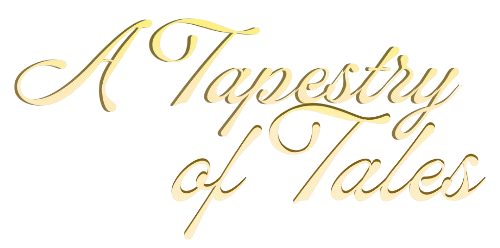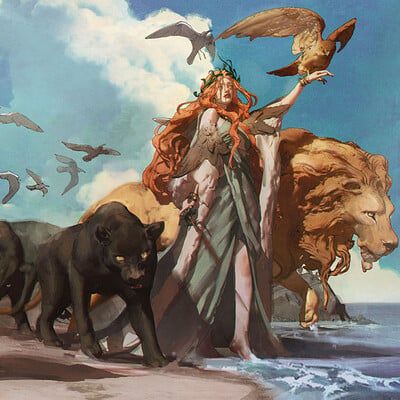Where to even begin? This was exactly as I had feared, the reason why my hands hovered so long over the keyboard, time and time again, the moment I decided that this book must be what I start on, the beginning of everything on this blog. But what other choice do I have? Circe has had me under her enchantment the moment her presence became known in my life: the myth, the book, the woman. I’d known Greek mythology ever since I was only a little girl, though the main character of the book in question was only one mentioned briefly in a few panels of the comic I had procured. Circe by Madeline Miller came later still, published in 2018 – though I wouldn’t know of its existence until late in 2020, but that is not to say the late coming diminished its impact on my life any. Perhaps if I were a more accomplished writer, I would’ve been able to successfully convey the sheer admiration I have for this singular piece of work, crafting the story written between the pages into the vivid and visceral painting as it deserved. But, silly, simple girl I am, I suppose I must be content with the way my fingers can only put down the little corner of interpretation I’d carved for myself, slowly and gradually collected each time I reread the book: namely, Madeline Miller’s interpretation of the Titan Circe.
Maybe that was what had drawn me to her in the first place, the Circe written by Madeline Miller’s hands in particular: the way she was never written as anything particularly “special”. The Circe in the Homeric hymns was said to be beautiful, clever, dangerous – a femme fatale if you please, if the ancient people back then had the word for such a character archetype. But Madeline Miller’s Circe was never supposed to be blindingly radiant; stupid, slow, ugly, with a screeching voice and hair streaked in an unsightly manner – all subjective remarks of those around her who were deemed ‘perfect’: more beautiful, more powerful, more clever and cunning, all glowing, idealized individuals one would see even now in their every day life, glittering under the immortal glaze of divinity. It hits much too close to home, to be the quiet one, the slow one, the one who never talked and never even knew how to talk to people, surrounded by all those who are smart, bright, luminous without ever having to try, always knowing that you’re just ‘born’ wrong, that you’re not good enough, yet never quite figuring out how to “fix” it, to emulate the effortless perfection everybody around you seems to command. “For a hundred generations, I had walked the world drowsy and dull, idle and at my ease. I left no prints, I did no deeds. Even those who loved me a little did not care enough to stay,” Circe had remarked, herself – a statement that many, sadly enough, would relate to, even if we do not have a god’s eternity to spend as Circe did.
But even then, at the one of the first turning points of the story, arguably when the story truly begun, when the story of “Circe” in Madeline Miller’s imagined retelling merges with the “witch of Aeaea” that we know from the myths today, the shining monument of Circe’s oppression among her godly family, both as a woman and an “worthless” nymph, unmarketable as a bride due to her “ugly” appearance and dull nature – Circe was banished to Aeaea as an exile, the result of having exposed her proficiency at magic, or pharmaka, to the gods, rousing fear in the hearts of the higher beings against a power they can neither control nor understand. Yet it was not the the end of the story, the moment the name “Circe” faded into obscurity forevermore; instead, it was that moment exactly that marked the beginning of her tales to come, the moment the “worthless nymph” only known for being the “blood of the sun” became the witch Circe, mistress of Aeaea, famed throughout mythology as one of the most prominent female figures among the minor gods and mortals. This, I think is the kind of turning point many people strive for, the ability to turn every situation in their favor no matter how bleak it had originally started out, the prospect that no matter how dark things may seem, there is always a light at the end of the tunnel, some method of clawing one’s way above their station.
Looking at Circe’s exile to Aeaea, I see a fragment of myself beneath the goddess’ golden gaze, my own ups and downs that I’d been pushed into and fought through and will continue to have to fight through. Perhaps it is unreasonable to compare myself to a god, but sometimes, when times get hard, I find myself thinking anyway:
You can get through this. Circe could do it, you can too.


Để lại một bình luận